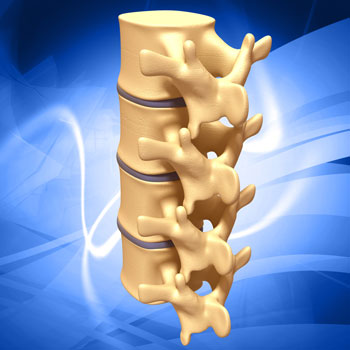Q&A: DEA requires addiction training for all prescribers
The Drug Enforcement Administration is requiring eight hours of training related to substance use disorder treatment, sending clinicians scurrying to their continuing education providers for help.
The federal government is pushing physicians to get up to speed on the addiction crisis facing the U.S.
As of June 27, 2023, clinicians applying for or renewing their registration with the Drug Enforcement Administration (DEA) must certify that they've completed training on the treatment and management of patients with opioid or other substance use disorders. This will be a one-time requirement, according to a public letter from the DEA.

Any organization accredited by the Accreditation Council for Continuing Medical Education (which includes ACP—see sidebar for resources from the College) can provide the training, the DEA said. The new details, released in late March, sent clinicians scurrying to their continuing education providers for help.
For more information on how physicians can meet the requirement and improve their knowledge of substance use disorders, ACP Internist recently spoke to Anika A. H. Alvanzo, MD, MS, FACP, an addiction medicine physician and managing partner of Uzima Consulting Group LLC in Baltimore.
Q: What's new about this requirement?
A: I would always refer you back to the DEA requirements. The DEA is requiring eight hours of training related to substance use disorder treatment. What is different than some of the previous requirements? There was not a requirement for addiction-related training unless you were going to be prescribing buprenorphine. For physicians [in that category], there were eight hours of training that were required, and that training was specific to recognition and treatment of opioid use disorder. For nurse practitioners and physician assistants, the DEA required 24 hours total of additional training. This training requirement is broader, inclusive of opioid use disorder but also other substance use disorders.
Q: So it will apply to a much larger group of clinicians?
A: According to the DEA, it's going to be applicable to prescribers who are looking to renew their DEA license. If you're in practice, are actively prescribing, and are looking to renew your DEA license, then it's going to be applicable.
Q: Is there anyone who is exempt from the requirement?
A: The letter does have a list of certain people who are exempt, and I would refer readers to the DEA letter for the full list of exemptions. Certainly the first group are going to be practitioners who are specialty-trained in addiction, whether they're addiction medicine specialists or addiction psychiatrists. They're exempt by virtue of their training and their board certification. Practitioners who previously completed the training for prescribing of buprenorphine and were X-waivered are also exempt.
One of the other groups is anybody who graduated from a medical school or nurse practitioner or physician assistant school within five years and can document that their curriculum included at least eight hours of training in this area. This, I think, speaks to the need for medical schools to really look at revising their curriculum so that their graduates, when they graduate, are already equipped with knowledge of how to screen, diagnose, treat, and appropriately refer patients with substance use disorders. We would hope they are all already doing this.
Q: For physicians in practice, what types of training are available?
A: There are a number of different continuing medical education opportunities available. I'm a member and a board member of the American Society of Addiction Medicine (ASAM), and ASAM has some phenomenal training for people who are considered novices, with respect to treatment of addiction, all the way through people who are specialty trained. There are other organizations that also provide continuing medical education in the area of substance use disorder treatment. I would advise people to not only look at national resources but look at state-specific resources that may speak more to regulations and requirements where they are practicing and serving patients.
Q: While physicians are meeting these requirements, are there particular skills they should try to learn?
A: We know that there's no segment of society that's spared from addiction. Whether people recognize it or not, people with addiction are in their practices. And so, No. 1, be able to recognize and identify the presence of not only an addiction, because ideally we want to catch somebody before they progress to an actual use disorder, but unhealthy use of substances—how to appropriately assess where somebody is along that continuum, then how to treat, and also how to recognize when the person's severity of illness may be beyond their ability to treat and they need to refer to specialty-level treatment, an addiction medicine specialist or an addiction psychiatrist. It's also important to know what are the co-occurring medical and psychiatric conditions that may present along with a substance use disorder and how to recognize those and treat or appropriately refer.
Q: Do you have any other advice for physicians on meeting this requirement and improving their addiction care?
A: Read the DEA letter, and then get familiar with resources or education about addiction and also treatment of addiction. They need to know what's available in their own communities: Who are the addiction medicine specialists in their community? Start forming those networks and partnerships and collaborations so that when they do have somebody whose substance use disorder has exceeded their ability to manage, they have that existing relationship with an addiction medicine specialist.
One of the things I also want to highlight is that just as there are health inequities in other areas of medicine, health inequities exist within addiction as well, with respect to racial and ethnic disparities in access to treatment. Providers need to be aware of that and working towards creating a practice that is looking to mitigate and eliminate those disparities. ASAM has online educational modules as well as policy statements on racial justice in addiction medicine.



